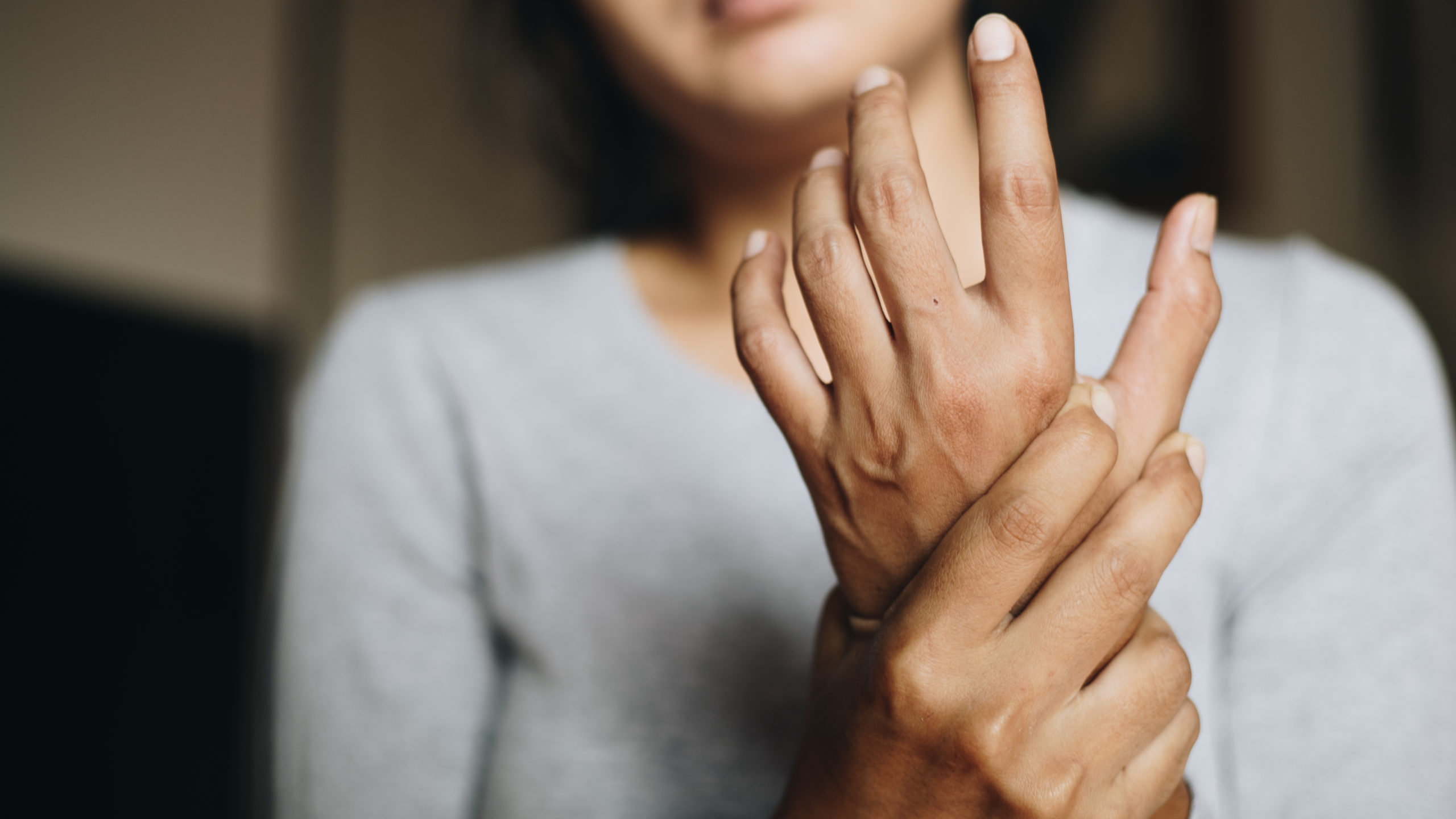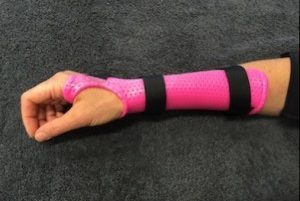
What is a wrist injury?
A wrist injury can occur from different mechanisms. It may develop over time or it can be from a specific incident like a fall. An injury to the wrist can cause pain, numbness, and fatigue as well as affect the way in which you move your hand and the ability to be able to use it. A hand therapist will be able to assess your wrist to determine the cause of the injury and administer appropriate treatment.
Causes of wrist pain
 There are many causes for wrist pain. Here is some common conditions and injuries seen in the wrist.
There are many causes for wrist pain. Here is some common conditions and injuries seen in the wrist.
Tendonitis: Tendonitis means inflammation of the tendons. Tendons are the extension of muscles which make the joints move. Tendons can become inflamed from repetitive tasks or from a direct blow to the hand. Symptoms will include pain, swelling and reduced movement. A common condition in the wrist is DeQuervains Tenosynovitis which affects the tendons inserting at the base of the thumb. Repetitive thumb and wrist motion can cause inflammation of these tendons. Many new mother’s develop DeQuervains from lifting their baby.
Fractures: Fractures can be caused by falling on an outstretched hand. An X-Ray can identify and confirm a suspected wrist fracture. Fractures can be treated in a cast or splint. Early diagnosis and treatment is essential.
Arthritis: Osteoarthritis is a wear and tear type arthritis. Cartilage, the smooth slippery surface at the end of the bones which allows your joints to glide and move smoothly can break down over time resulting in pain and inflammation. Osteoarthritis of the wrist can occur over time or after an injury to the wrist. Rheumatoid arthritis is an autoimmune disorder where your own body starts to attacks its own joints and soft tissue structures, causing pain, swelling and an inability to use and move your hand.
Sprains/Strains: Ligament injuries can occur from falling on an outstretched hand or if the wrist gets forced under load. The scapholunate ligament is often injured and causes pain over the thumb side of the wrist. Patients have difficulty moving the wrist into extension, lifting up heavy items and weightbearing. The TFCC ligament stabilises the opposite side of the wrist. Patients with issues with the TFCC ligament have difficulty twisting their wrist under load eg. using screwdriver or opening a door.
Carpal Tunnel Syndrome: As the median nerve passes through the carpal tunnel it can get compressed leading to numbness, pins and needles, and pain in the wrist and referring into the thumb/index/middle/ring fingers. It can occur in combination with another injury or develop by itself. Symptoms of carpal tunnel syndrome are generally more noticeable at night time but can develop during the day during particular activities such as driving and computer work.
Ganglions: Ganglions are fluid filled sacks that can pop up from a joint. They are common in the wrist and can either be found on the dorsum of the wrist or on the palmar side. Sometimes they come and go depending on the activity but sometimes they persist and cause issues with movement and weightbearing.
Keinbock’s disease: Is when the lunate bone (one of the small 8 carpal bones in the wrist) loses its blood supply, leading to death of the bone. It occurs in young adults.
When should you see your hand therapist?
Some wrist injuries such as sprains resolve quickly. However if your pain is severe or not resolving please contact your therapist. Early prompt treatment ensures quicker diagnosis and treatment allowing you to return to function faster. A hand therapist specialises in only hand and arm conditions and is good first point of call after your wrist injury.
Treatment
Therapists can assess your wrist injury and determine appropriate treatment. This may involve splints or strapping or exercises and strengthening. Treatment plans will be tailored to each persons individual needs.
If non-operative treatment is unsuccessful or if your injury is severe (eg. displaced or multi fragment fractures) a specialist opinion and surgery may be required. Your therapist will be able to help in your recovery post-surgery.
If you have any questions regarding a condition you have or to book an appointment, feel free to contact us here. We’d be more than happy to help!





